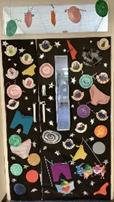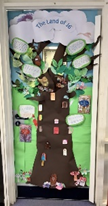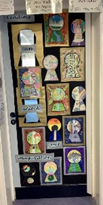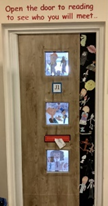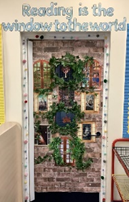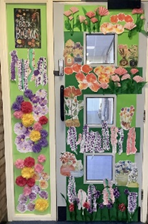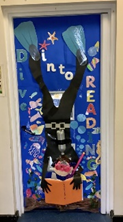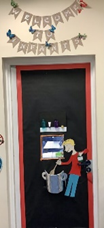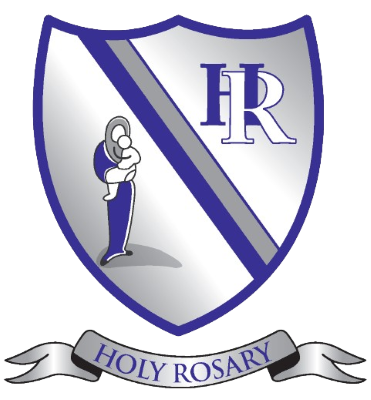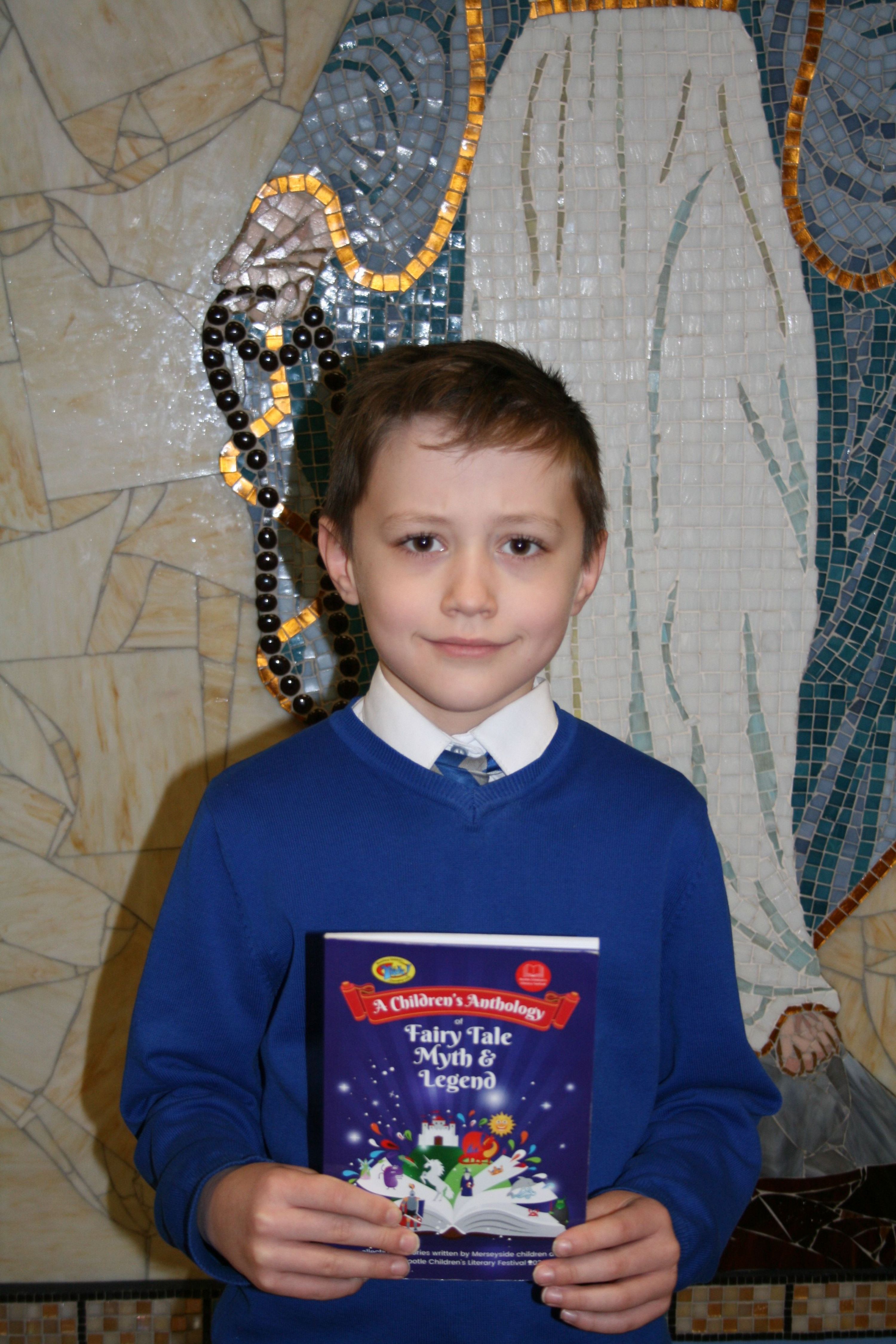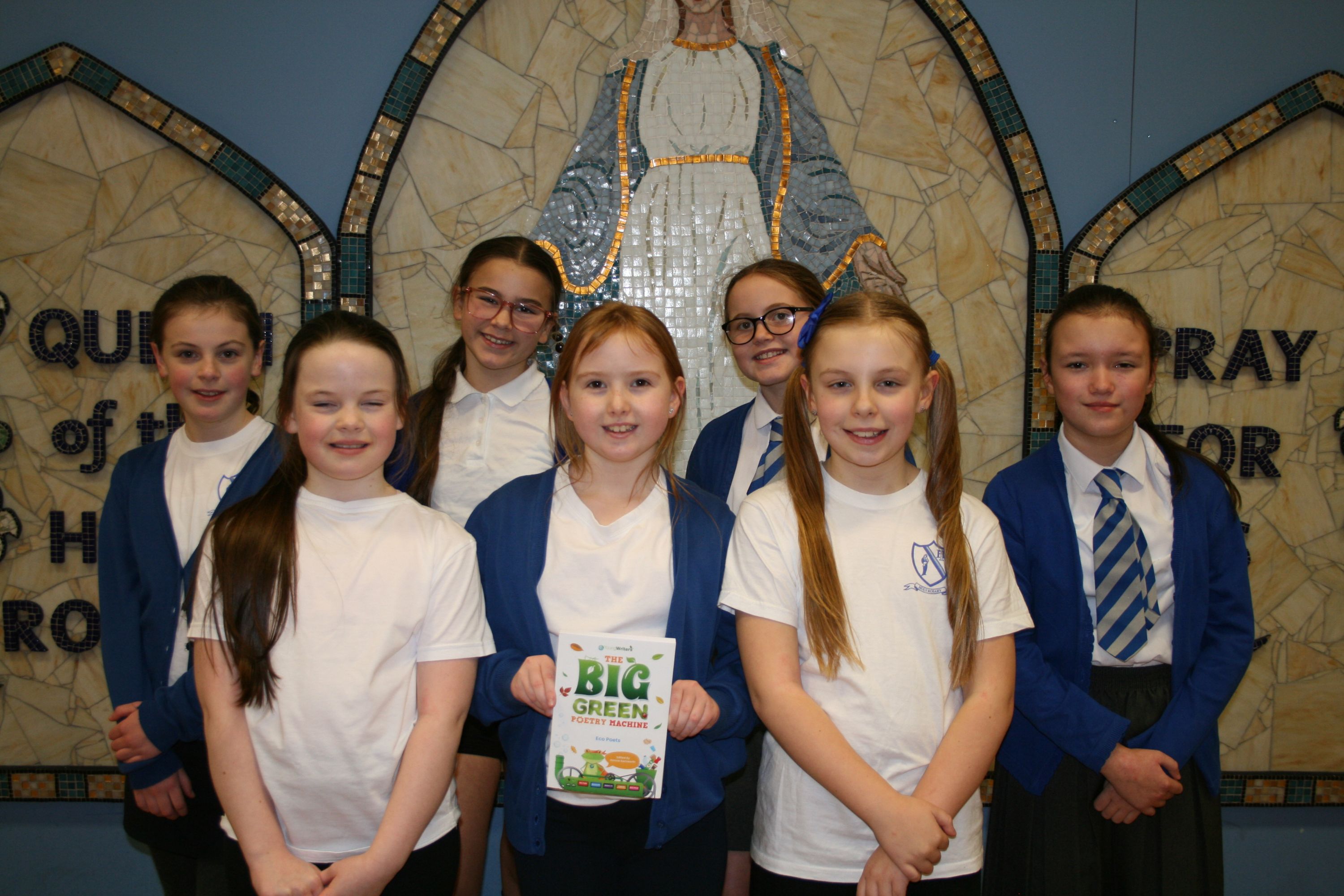English
Our Curriculum
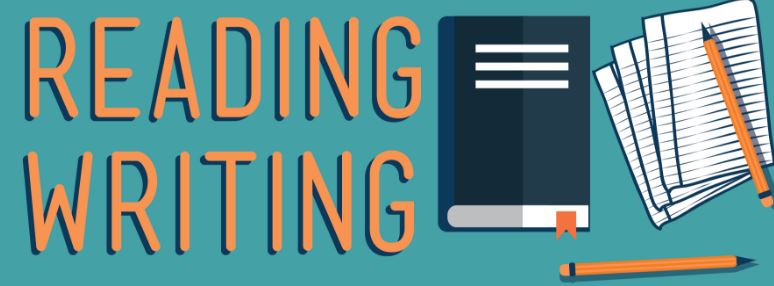
‘Let us remember: One book, one pen, one child and one teacher can change the world’
– Malala Yousafai
Intent
At Holy Rosary Catholic Primary School, it is our intention to ensure that English is at the heart of our curriculum and through all we do. Our curriculum is designed to ensure all pupils will write and speak fluently so that they can communicate their ideas and emotions to others and through their reading and listening, others can communicate with them. We believe that through our reading curriculum in particular, pupils will have a chance to develop culturally, emotionally, intellectually, socially and spiritually which is why we ensure throughout the school pupils have access to a rich and varied literature as this plays a key role in such development. We place a strong emphasis on reading as it also enables pupils to both acquire knowledge and to build on what they already know and help pupils access the whole curriculum. We believe that all the skills of language are essential to participating fully as a member of society; pupils, therefore, who do not learn to speak, read and write fluently and confidently are effectively disenfranchised and therefore we place an emphasis on the importance of Oracy to support the development of writing.
Implementation
- Opportunities for the development of spoken language are made across the curriculum as this underpins the development of reading and writing. The quality and variety of language pupils hear and speak are vital for developing their vocabulary and grammar and their understanding for reading and writing.
- We use the Systematic, Synthetic Phonics Program 'Floppy's Phonics' to teach early reading. This is used well to teach children the alphabetic code. Children are taught the skills of blending and segmenting to encode and decode words. It is a progressive approach that builds on previous knowledge and skills to ensure that children learn to read effectively and efficiently. We use a range of matched decodable books to ensure that children have ample opportunities to apply their phonic knowledge and develop their reading skills.
- A clear and comprehension Progression Map for Reading which is in line with the National Curriculum and meets the needs of all pupils. Teaching and learning shows progression across all key stages within the Programmes of Study for Reading including the two dimensions of Word Reading and Comprehension. It is focused on developing pupils’ competence in both dimensions and teaching is adapted for both. Skilled word reading requires the speedy working out of the pronunciation of unfamiliar printed words and the speedy recognition of familiar printed words. Underpinning both is the understanding that the letters on the page represent the sounds in spoken words. Phonics is emphasised in the early teaching of reading for this reason. Progression Maps for Reading also show clear direction for how comprehension skills are developed through pupils’ experience of high-quality discussion across a range of genres. Teachers use a Reciprocal reading approach when teaching reading.
- Knowledge Mats for Reading have been designed for all year groups which provide staff with clear expectations for their year group for Word Reading, Comprehension, Language For Effect, Making Inferences and Themes and Conventions.
- Guided Reading is planned and delivered on a weekly basis from Year 2 (either in groups or to whole class) and time is provided for dedicated personal response time. We use a Reciprocal Reading approach where the key skills of predicting, summarising, questioning, and clarifying are taught.
- We believe that reading for pleasure is of high importance which is why we have designated independent reading time is planned for throughout the week to ensure all pupils have time to develop the habit of reading widely and often, for both pleasure and information. All classrooms have well stoked libraries as well as our Reading Hub and Key Stage 1 Library that are used for reading for pleasure throughout the week.
- All children take home school reading books in line with their reading level. Children still working through the phonics program take home a decodable book. Once completed the program children are given free choice within a certain selection of age-appropriate books. These are monitored closely by teachers to encourage children to read a range of genres.
- Children read with adults in school across the week to develop their individual reading needs. They are encouraged to read at home to their parents and cares. Their progress in reading is communicated in their Yellow Reading record.
- A clear and comprehensive Map of Coverage for Writing has been designed to ensure clear progression for Narrative, Non-Narrative and Poetry including Text Types to be covered in each year group. This links to the National Curriculum expectations for spelling, vocabulary punctuation and grammar for each year group.
- We ensure that all of our writing is embedded in a wide range of engaging texts. In Early Years and Key Stage 1 we predominantly use a ‘Talk for Writing’ approach, allowing children plenty of opportunities to talk and rehearse their writing. Through this they develop vocabulary and sentence structures in line with National Curriculum Expectations.
- Throughout Key Stage 2 we ensure that we have a clear purpose for our writing. Children learn to write in a range of genres following the National Curriculum progression for Spelling and Grammar.
- Throughout the year we plan writing topics linking to other subjects, allowing pupils to research a topic, write up and present their findings. Topics covered so far include: ‘Which is the Greatest Invention of all time?’ ‘Who is the Greatest Sports person of all time?’, Range of authors, Impact of Climate Change, Composers through time.
- Purposeful links are created across other subjects so pupils have the opportunity to develop their English skills across the curriculum.
- Through enrichment days, such as ‘World Book Day’, visiting Authors and Theatre companies we ensure that the English curriculum is exciting and motivating for all children. We also have strong links with YKids in Bootle who provide author workshops as well as visits to local bookstores.
- Attainment is assessed in reading each term using PIRA assessments and writing is assessed using year group expectations on a half termly basis depending on the length of the half term. These are used effectively to inform future planning.
- We use ‘Letter Join’ Handwriting scheme across the school, developing all children’s handwriting so they can produce fluent, legible and, eventually, speedy joined-up handwriting.
- We use ‘Rising Stars’ spelling program across the school, adapting this when necessary to be in line with our schools Phonics Program. This is used to provide weekly lessons on spelling patterns and provides weekly spellings that can be rehearsed at home.
Impact
Through implementing the above, we aim for all children to achieve age related expectations while demonstrating a love of English which will continue through life. We want our pupils to be able to read fluently, and with confidence, in any subject to prepare them for their forthcoming secondary education. We also aim for our pupils to appreciate our rich and varied literary heritage, write clearly, accurately and coherently, adapting their language and style for a range of purposes and audiences and being enthused and proud of their work.
Reading Hub and Infant Library
Our Reading Hub is named in honour of Mrs Morris as this was her last purchase as Headteacher for our school. This is a much-loved space by all children who go there to enjoy reading throughout their school day. We believe that reading is at the heart of all that we do at Holy Rosary and know that Reading for Pleasure has such great impact on children’s learning in all areas.
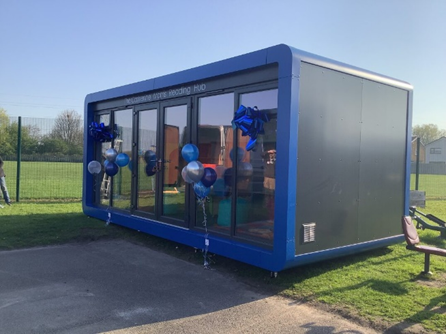

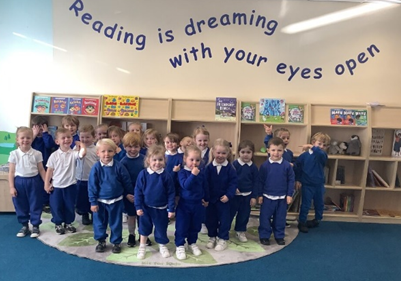
Holy Rosary Reading Ambassadors:
Each class in KS2 has a Reading Ambassador. This role is hugely popular, children had to complete and application form to be considered for the role. The goal of the nominated ambassadors for each class is to create an environment where children feel pupils have a thirst and love for reading. They collect pupil voice on favourite authors and genres they enjoy reading and ensure our class libraries and Reading Hub is full of a range of exciting texts to read. They ensure that the reading areas are well used, tidied and clearly organised into genres and by authors. They actively promote reading across the school by completing book reviews, recommended reads and reading with our younger children in Key Stage 1 and EYFS.

English Enrichment Opportunities
M & M Productions
At least twice a year we bring Theatre to Holy Rosary! We enjoy a range of classics such as The Hobbit, The Secret Garden, Oliver Twist as well much-loved traditional tales such as Beauty and the Beast and Cinderella. This opportunity brings literature to life, the children are captivated by the performance and begins to develop a love of theatre and watching live performances. It inspires children to take to the stage and throughout the year we have a range of opportunities for children to participate in amateur dramatics.
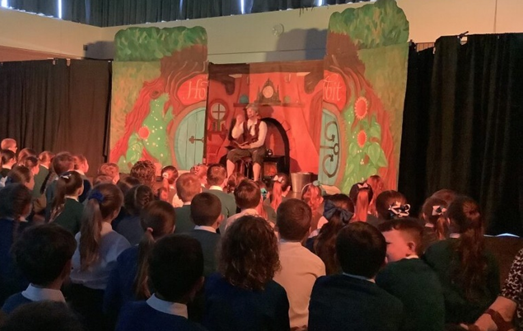
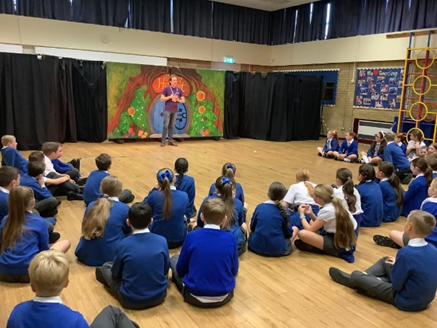
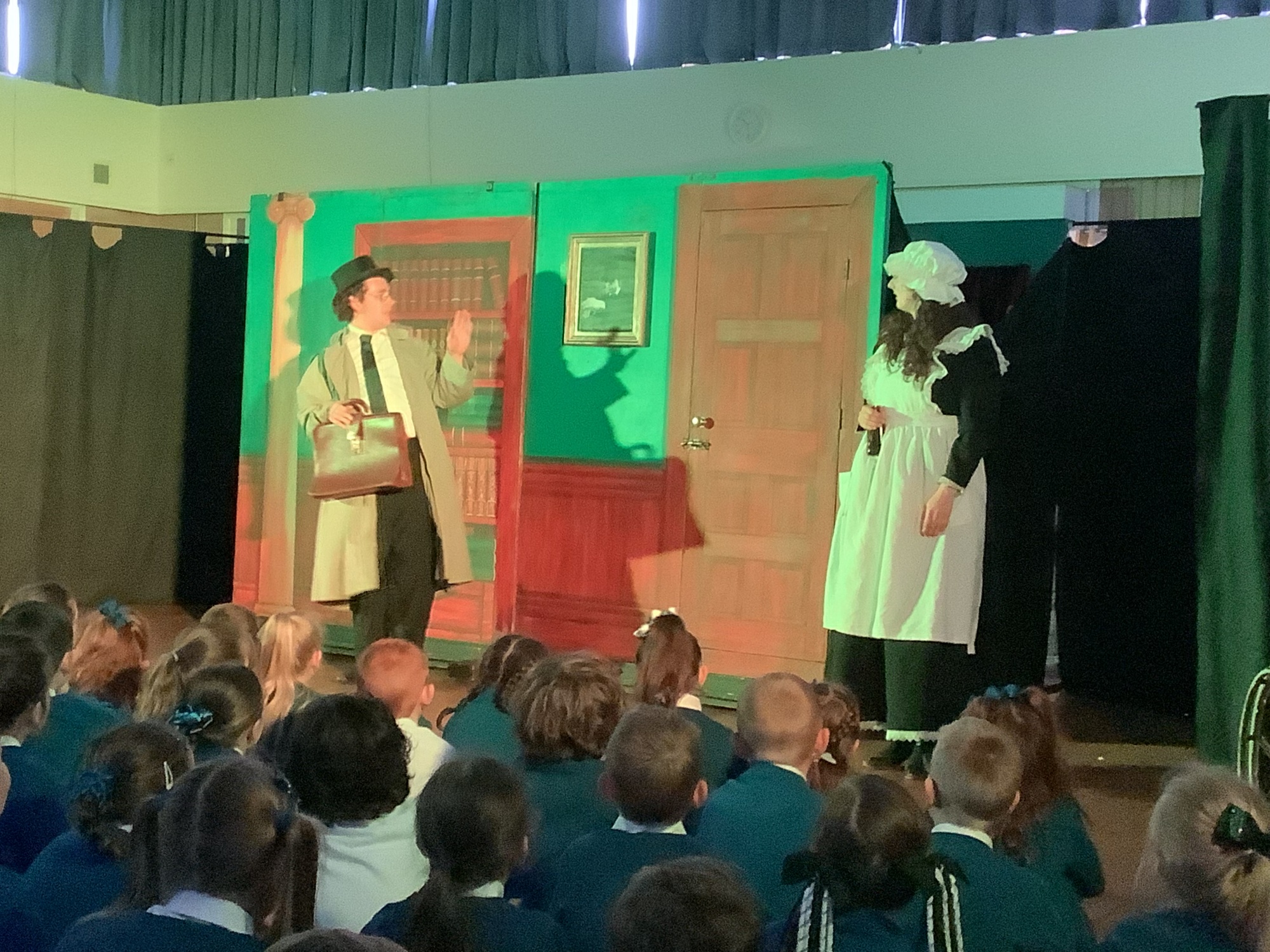
World Book Day
World Book Day is a vital celebration that champions the love of reading. This annual event underscores the profound impact of literature on our lives, fostering literacy, and connecting us to diverse realms of imagination and knowledge. By coming together to celebrate books, we promote a sense of community and inspire a lifelong appreciation for reading. World Book Day is a powerful reminder of the joy derived from the written word and the transformative nature of stories, cultivating empathy and empowering individuals with the invaluable tool of knowledge.

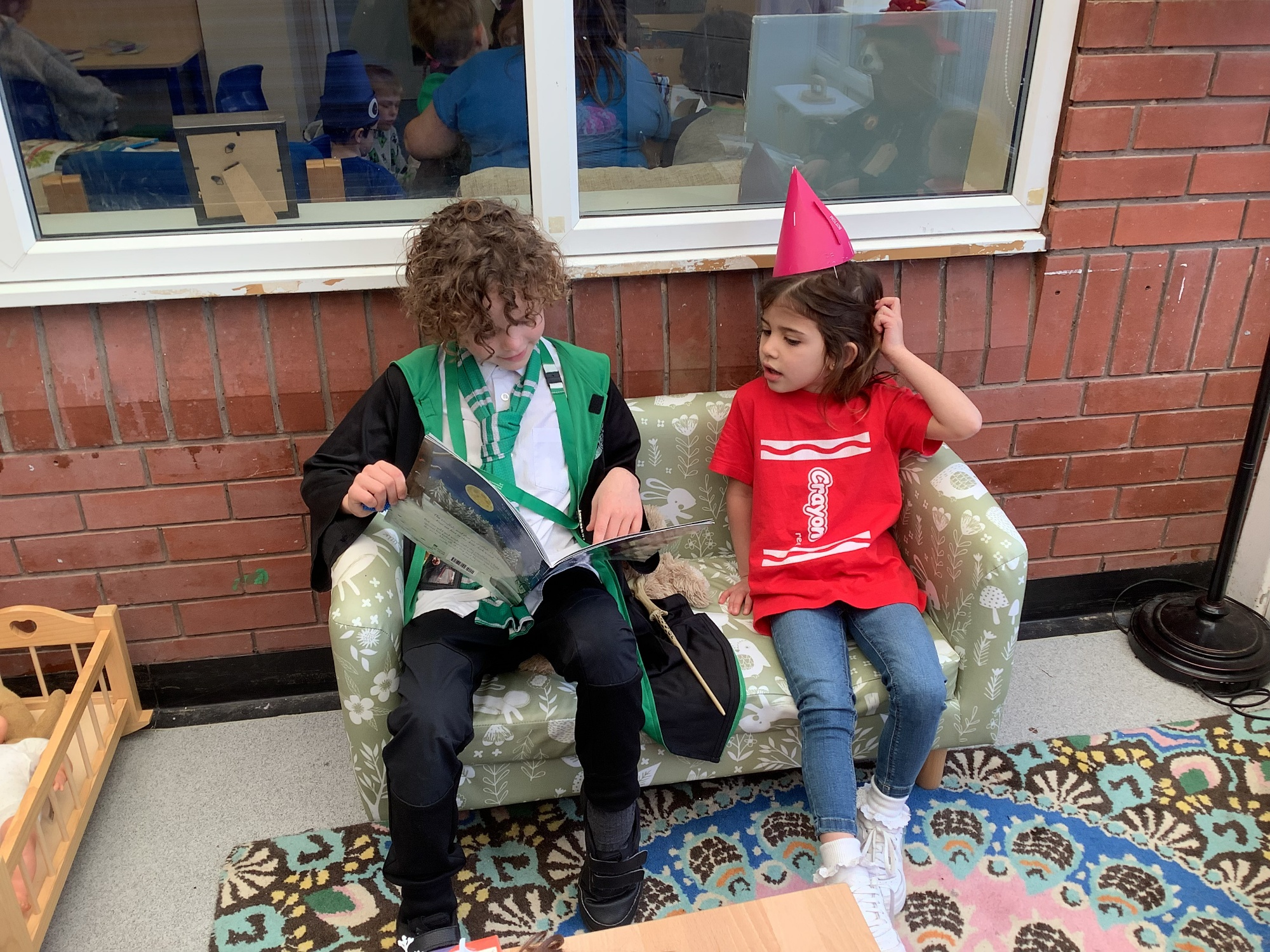
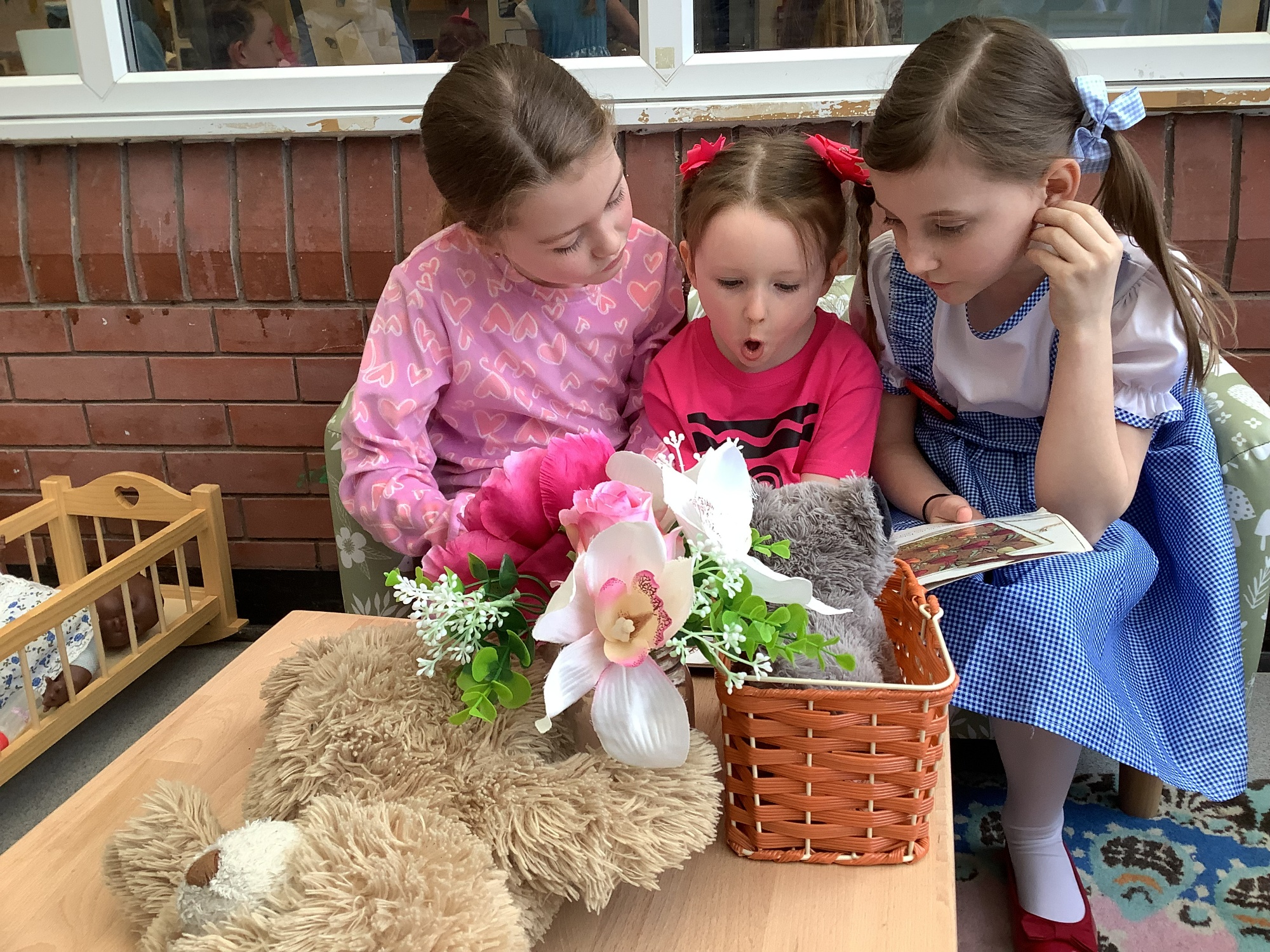
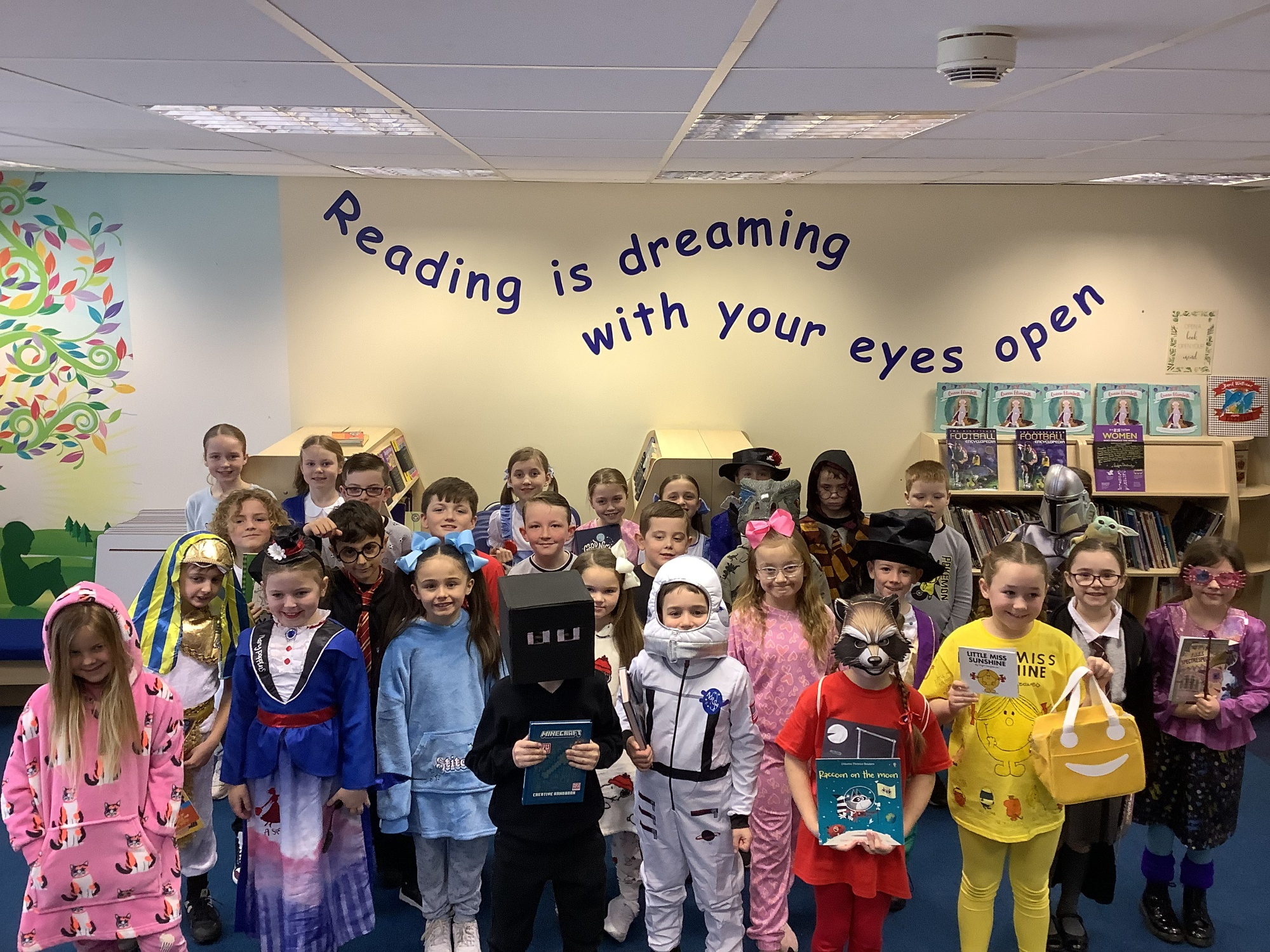
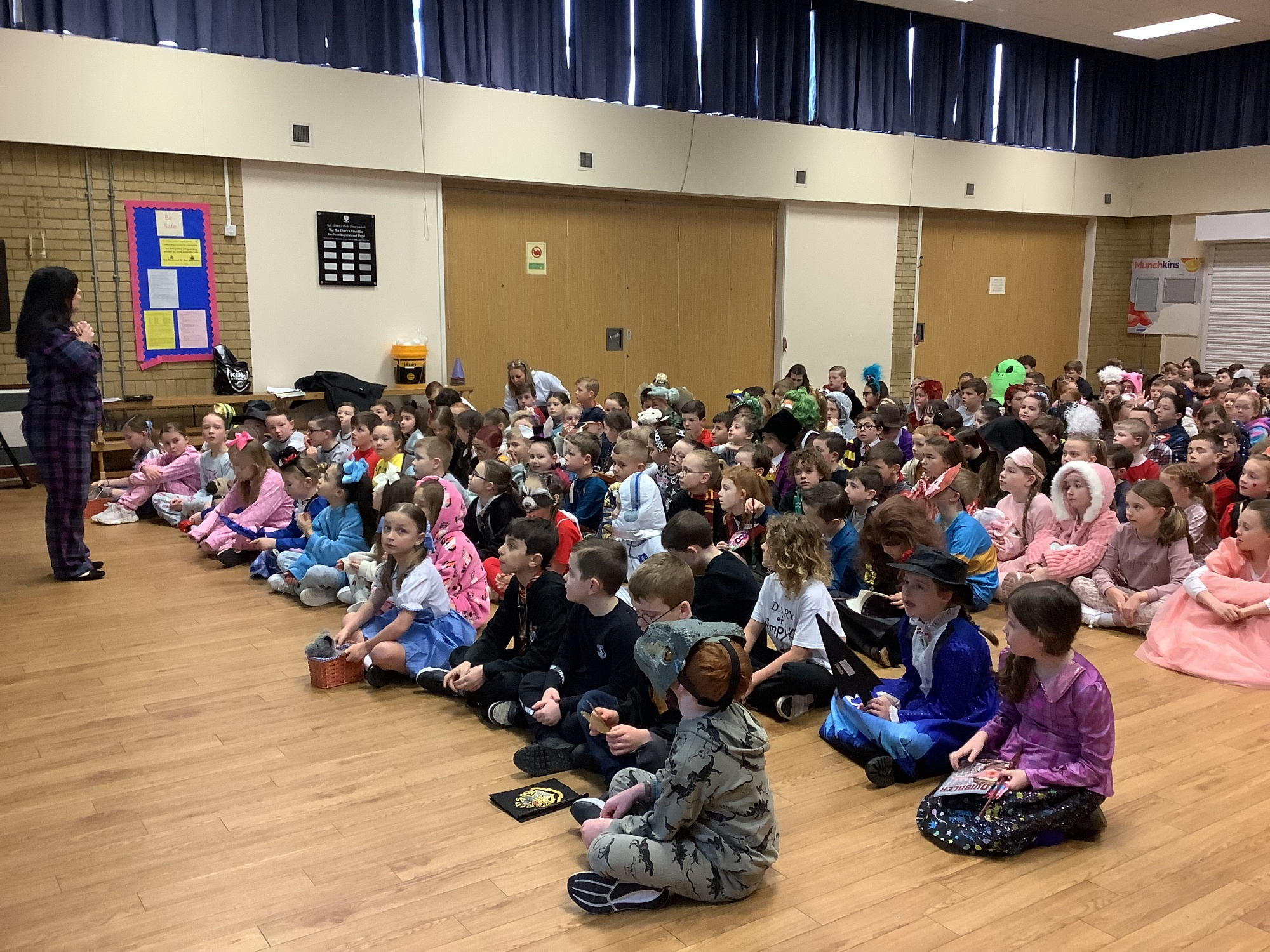
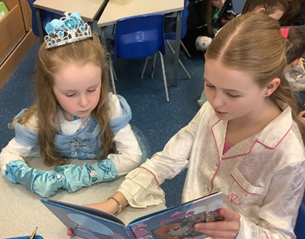
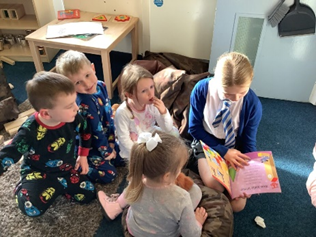
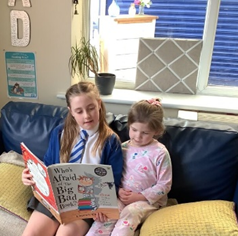
Author Visits
We have strong links with ‘Kingsley and co’ a local book shop. Children enjoy visiting and participating in workshops. They have taken part in a Masterclass with Authors where they develop their craft and a love of writing. Some of our pupils have now become published Authors as a result of this.
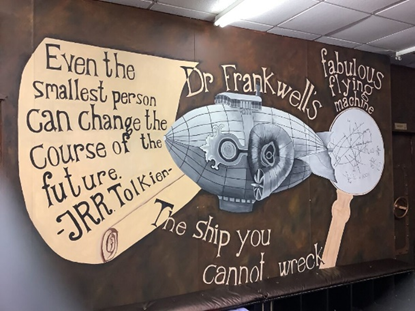
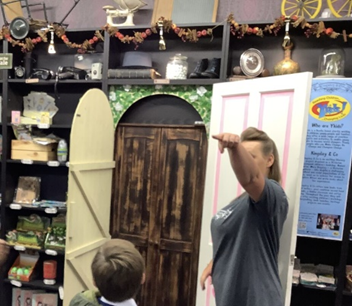
Another example of our devotion to a creative curriculum is inviting local Authors to visit our school. Frank Cotrell-Boyce recently visited and shared his work, his love of writing and his inspiration for his writing with the children. During assembly he read extracts of his books and then completed workshops with some KS2 classes. The children were inspired by this experience and full of questions. It continued to develop budding writers and illustrators.
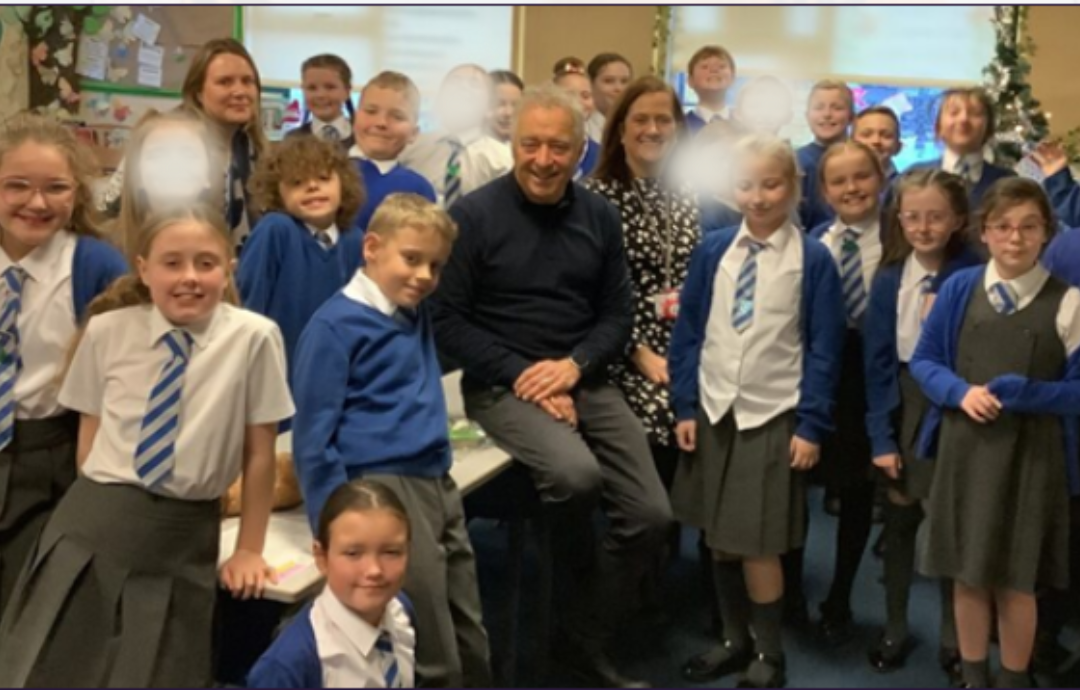
Poet Matt Goodfellow Visits Our School: A Day of Inspiration and Creativity
We were thrilled to welcome acclaimed poet Matt Goodfellow to our school for an unforgettable day of poetry and creativity! Matt, known for his engaging and dynamic performances, kicked off his visit with a captivating assembly for all of KS2. His lively reading and infectious enthusiasm set the tone for a day filled with inspiration and excitement.
Throughout the assembly, Matt shared some of his favourite poems, bringing them to life with his animated style and encouraging the children to see poetry as a fun and accessible way to express their thoughts and feelings. The energy in the room was palpable, and it was clear that the students were immediately hooked!
Following the assembly, Matt led a series of interactive workshops with individual classes, providing a more hands-on opportunity for students to explore their poetic voices. In these sessions, he guided the children through a variety of creative exercises, encouraging them to play with words, rhythms, and imagery. Matt's approachable manner and passion for poetry made it easy for everyone to get involved, and the students were eager to share their ideas and try their hand at writing their own poems.
The workshops were a fantastic opportunity for our students to develop their poetry skills and gain confidence in their writing. Matt's expert guidance and encouragement helped them to see that poetry is not just about following rules but about expressing themselves in their own unique way. The children were buzzing with excitement as they discovered new ways to use language and had the chance to perform their creations for their classmates.
Overall, Matt Goodfellow's visit was a wonderful experience that will have a lasting impact on our learners. It was inspiring to see the children so engaged and enthusiastic about poetry, and we are incredibly grateful to Matt for sharing his time, talent, and passion with us. We look forward to building on this momentum and continuing to foster a love for poetry in our school community.
Thank you, Matt Goodfellow, for an inspiring day!


Our Published Authors
While it is wonderful working with established authors, we are creating some authors of our own here at Holy Rosary! The Literacy Festival winner is our very own Pippa from Year 5. Another published authour of ours is George in Year 4. George has had his story published through the Bootle Children's Literature Festival 2023. 117 were shortlisted and just 29 stories were published. George's story made the cut and has been published in 'A Children's Anthology of Fairy Tale Myth and Ledgend'. We have purchased copies of these for our Reading Spaces throughout the school.
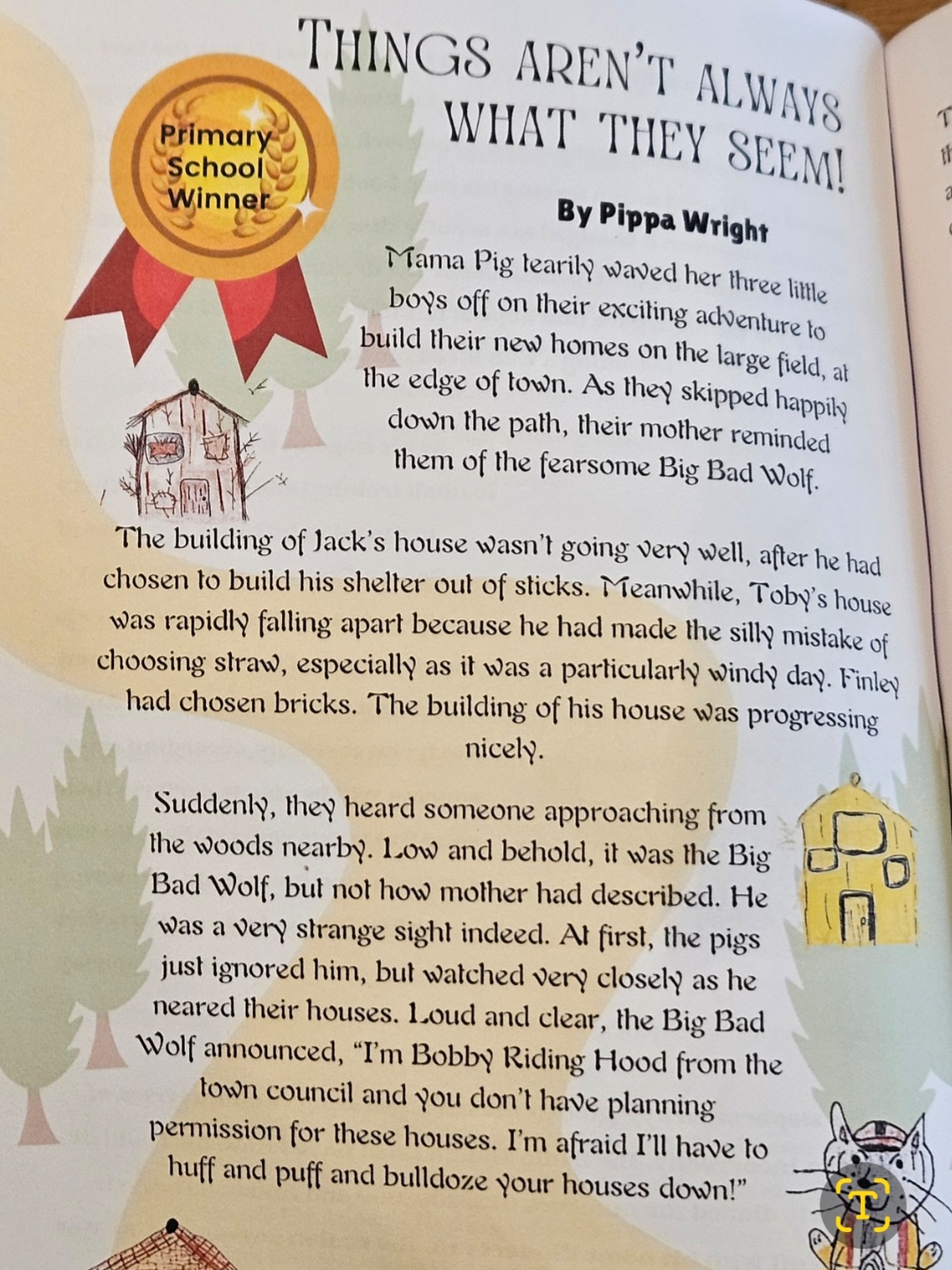
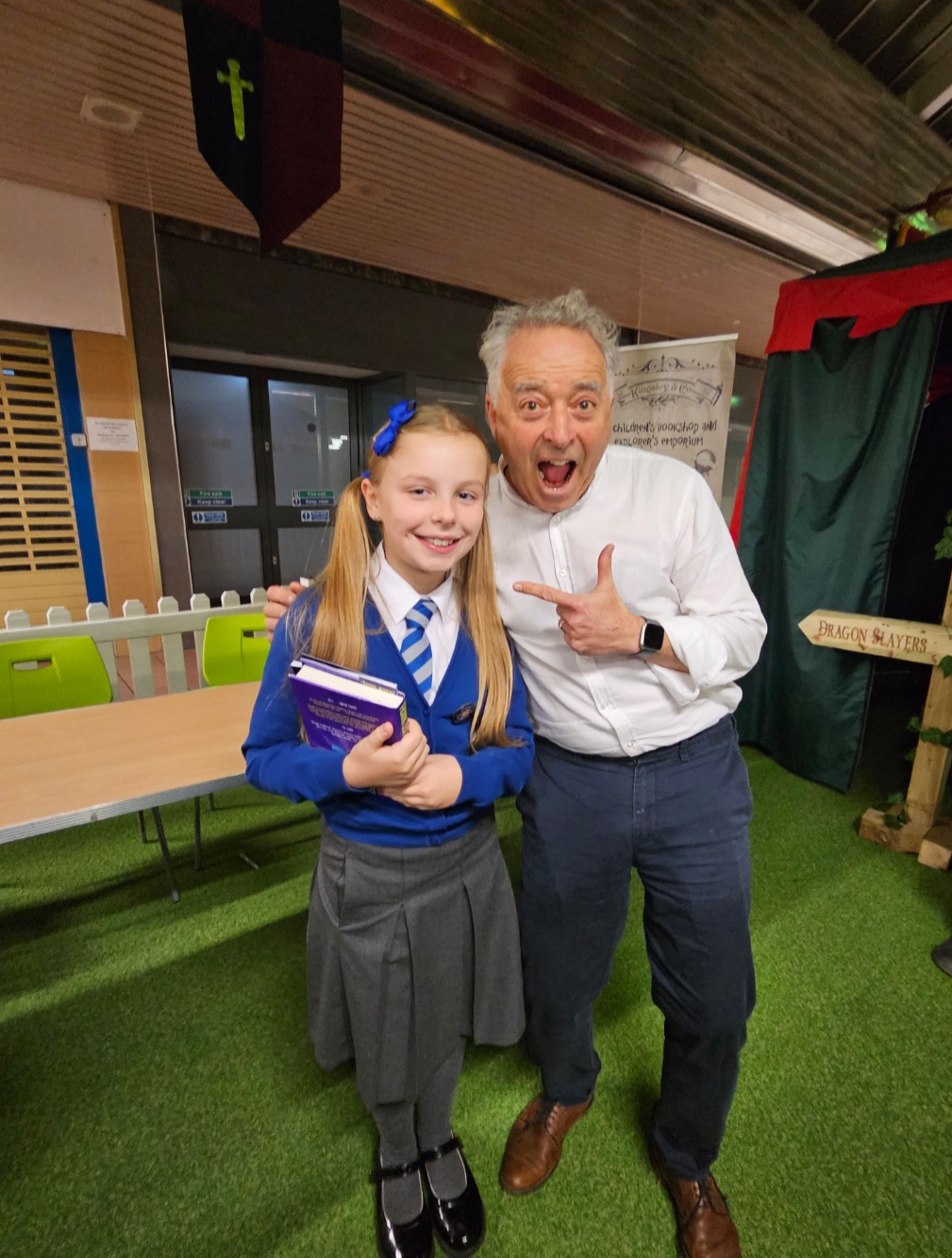
Our ECO club, a group of environmentally conscious individuals, achieved a significant milestone by having their poetry published in 'The Big Green Poetry Machine'.
Story Barn Visit
We collaborate with our local Story Barn where we enjoy a range of workshops both in school and in Calderstones Park. Story Telling in variety of forms is promoted and because of this, children are able to enjoy and develop their own story telling.
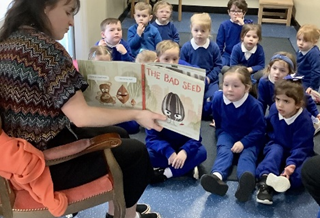
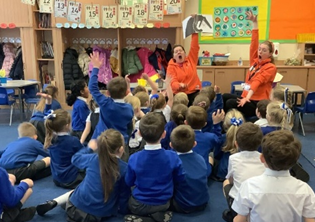
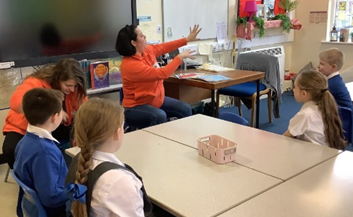
Decorate your Door Competition
As part of our World Book Day celebrations we decided to decorate our classroom doors to promote one of our favourite books. This really encouraged lots of ‘book talk’ between our children and across the Year Groups.
